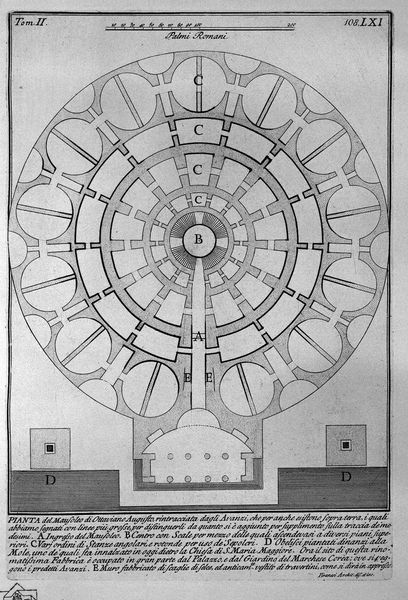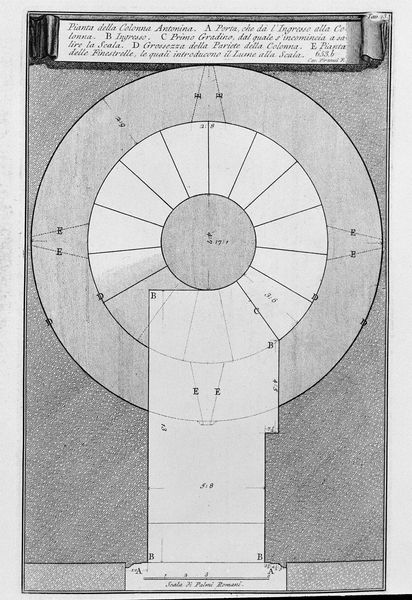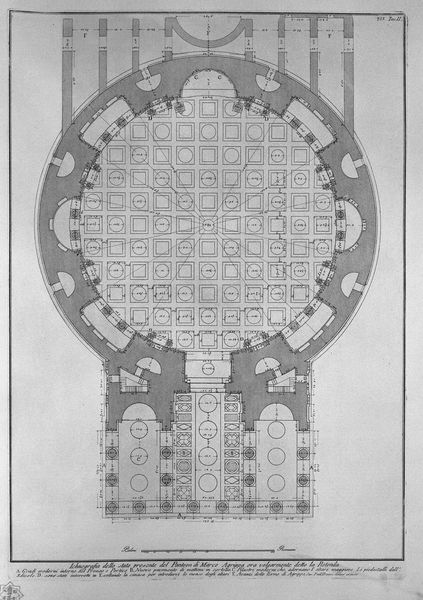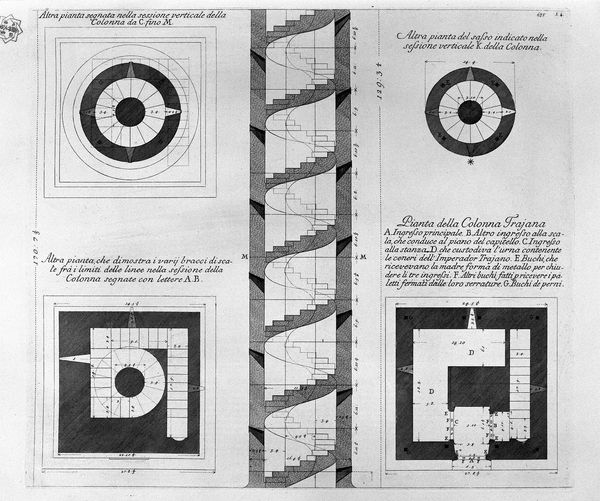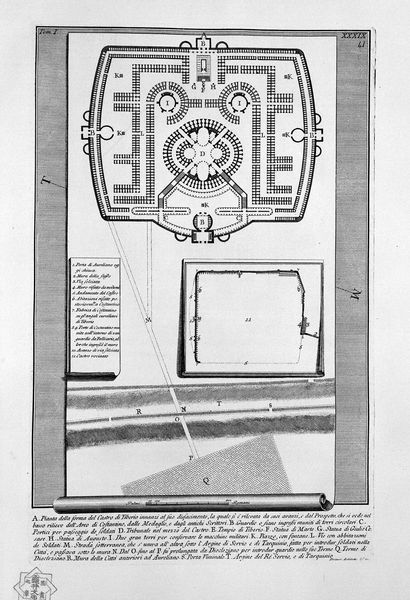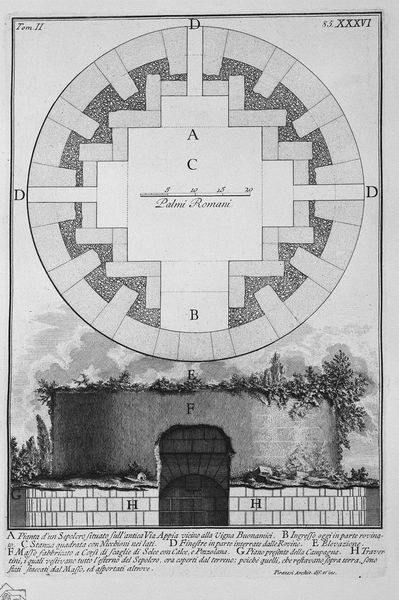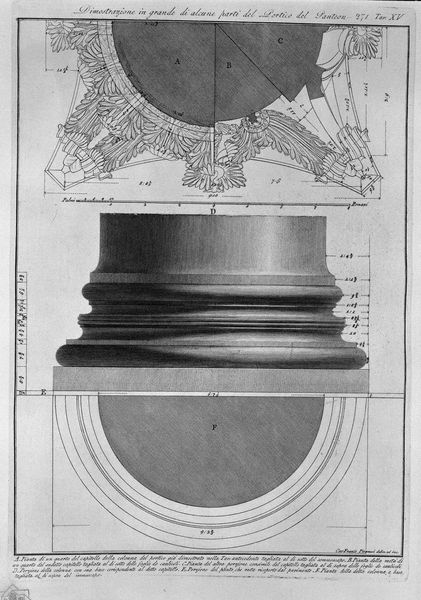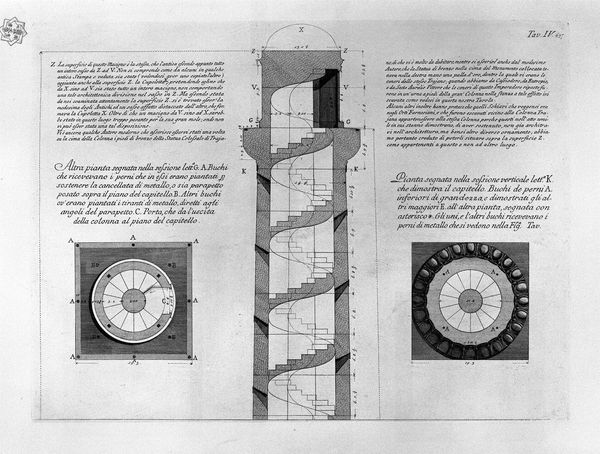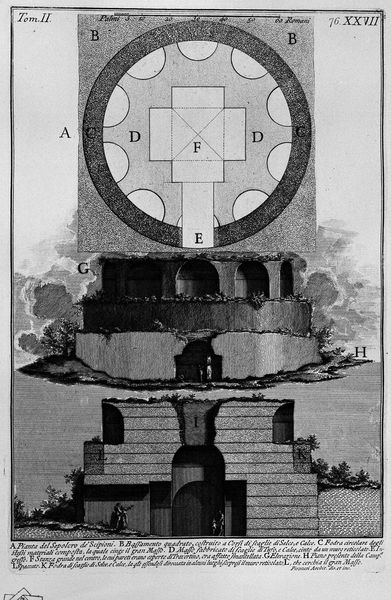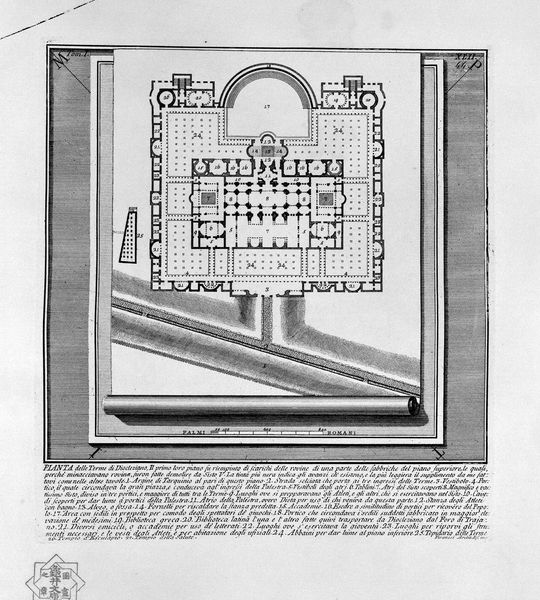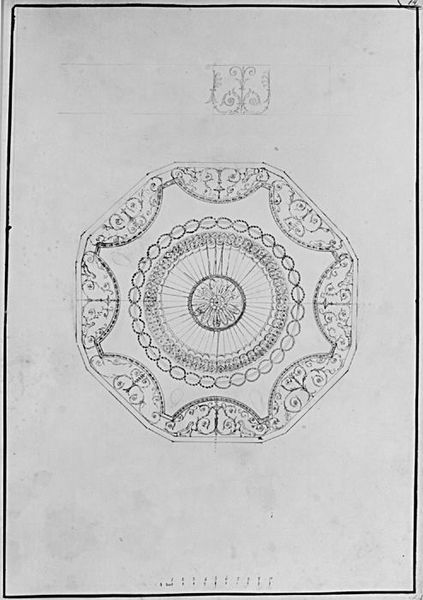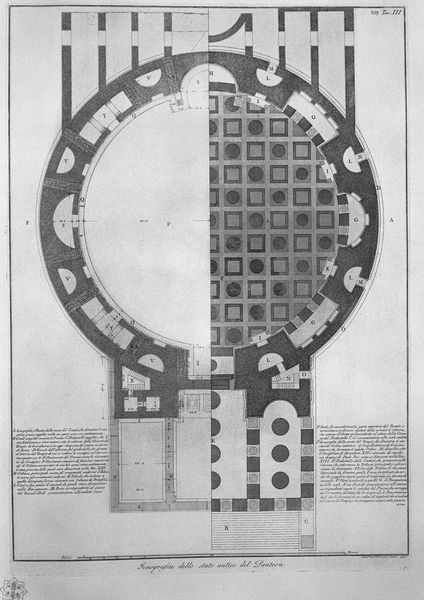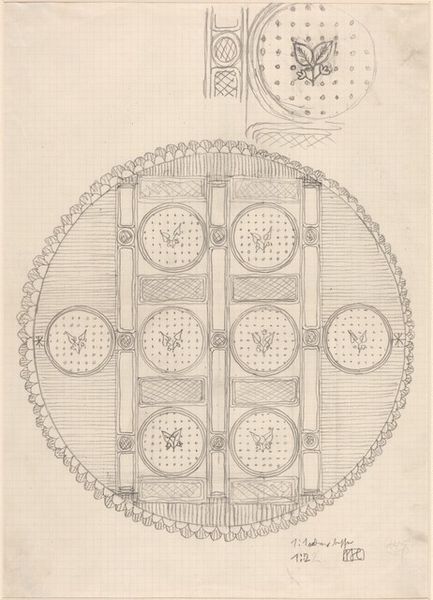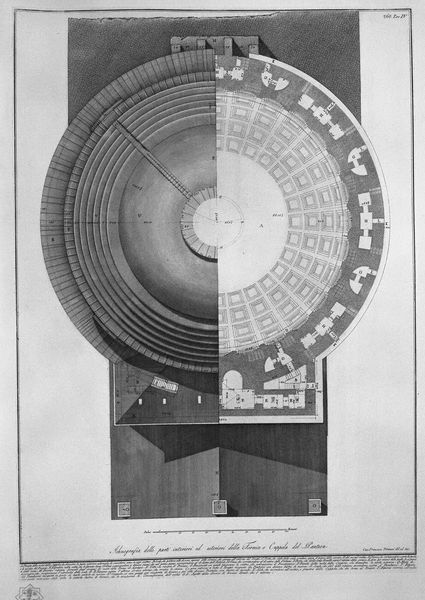
drawing, print, engraving, architecture
#
drawing
# print
#
old engraving style
#
geometric
#
ancient-mediterranean
#
arch
#
limited contrast and shading
#
cityscape
#
tonal art
#
engraving
#
architecture
Copyright: Public domain
Giovanni Battista Piranesi etched this plan of the Temple of Vesta in Tivoli in the 18th century. The circular structure, punctuated by columns, speaks volumes about ancient Roman ideals. The circle, a dominant motif, represents perfection, eternity, and the cosmos. It evokes a sense of wholeness, a concept found in various cultures throughout history. Consider the mandalas of Eastern traditions, also circular, representing the universe and spiritual completeness. The Temple of Vesta, dedicated to the Roman goddess of hearth, embodies perpetual fire. This recalls the sacred flame tended by priestesses, a symbol of the home, family, and state, all interconnected. The circular plan, with its central cella, suggests a concentrated energy, focusing inward. This inward focus can be interpreted as a psychological reflection on the self. It invites contemplation on the cyclical nature of life and the enduring power of symbols. The circle, therefore, has an emotional resonance. It engages viewers in a subconscious dialogue about time, memory, and the human condition.
Comments
No comments
Be the first to comment and join the conversation on the ultimate creative platform.
